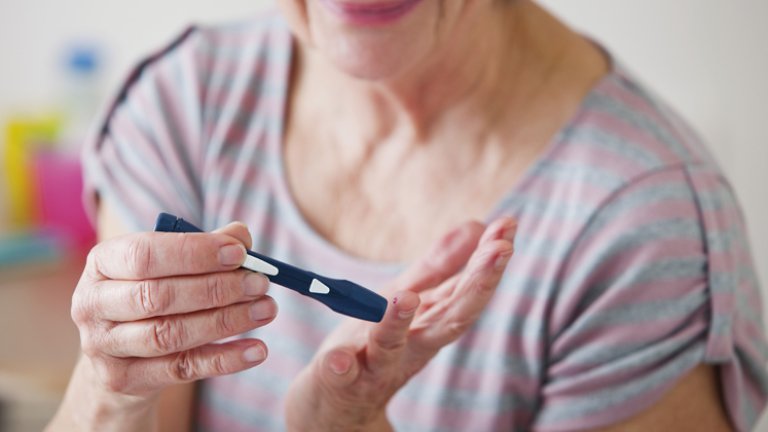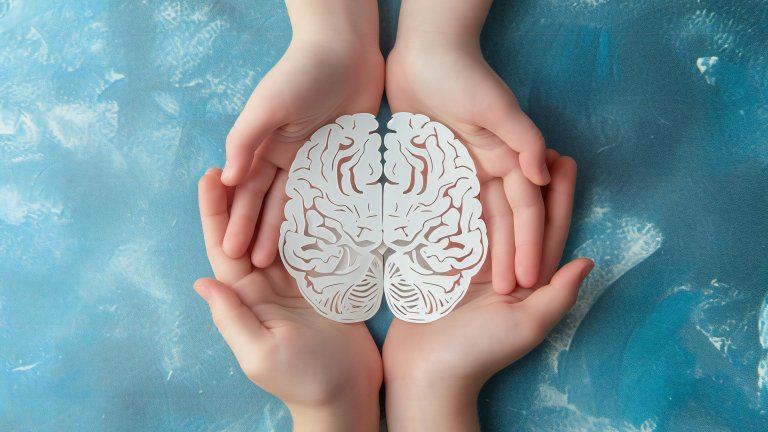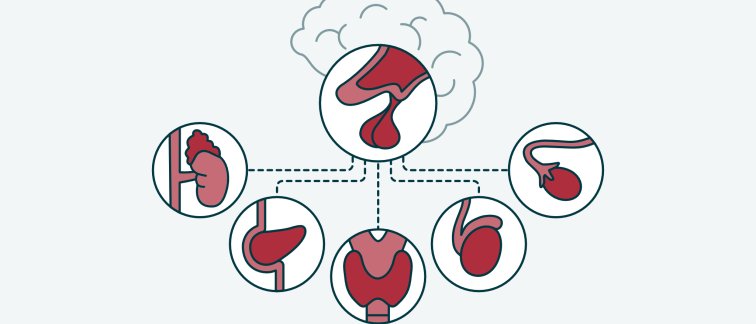The ultimate aim of this research program is to improve metabolic health of patients with endocrine pathologies. In this program, four focus areas have been identified:
- Thyroid
- Obesity & Diabetes
- Hypothalamus & Pituitary
- Gonads
Thyroid
The Amsterdam University Medical Center (Amsterdam UMC) has a longstanding tradition in clinical and referral thyroid patient care and thyroid research. The thyroid research has a strong translational approach with both basic and clinical researchers within one research group. As a unique feature, the Endocrine laboratory of the Amsterdam UMC hosts the core facility of the neonatal screening program for congenital hypothyroidism in the northwest part of The Netherlands. Current thyroid research is focused on three themes: 1) Thyroid hormone metabolism and action in innate immune cells and during NAFLD, 2) Advanced measurements of thyroid function and 3) Diagnostic and functional aspects of central congenital hypothyroidism (CH).
Senior researchers in this program
- Dr. Eveline Bruinstroop, Pure profile
- Dr. Anne van der Spek, Pure profile
- Dr. ir. Jacquelien Hillebrand, Pure profile
- Dr. Wendy den Elzen, Pure profile
- Prof. dr. Annemieke Heijboer, Pure profile
- Dr. Nitash Zwaveling-Soonawala, Pure profile
- Prof. dr. Paul van Trotsenburg, Pure profile
- Prof. dr. Anita Boelen, Pure profile

Obesity & Diabetes
Our research aims to understand the mechanisms of obesity and insulin resistance/diabetes from a multidimensional perspective. First, our basic and clinical research projects investigate the effects of Western-style diets, circadian misalignment and obesity on brain control of body weight and glucose metabolism. Second, in depth metabolic phenotyping, including assessment of metabolic fluxes and signaling pathways in human tissue, are performed to study mechanisms of insulin resistance. Ongoing lifestyle intervention studies will shed light on factors associated with weight loss and improvement of metabolic health. For animal studies, we use rodent models of diabetes and obesity. In humans, we apply advanced neuroimaging techniques and hyperinsulinemic clamps and we perform tissue biopsies. Postmortem human brain tissues of patients with obesity/diabetes are available from the brain biobank. Third, we study the influence of extensive hormonal changes, i.e. during pregnancy and menopause, on glucose metabolism, mental wellbeing and other clinical outcomes in women with diabetes. Our aim is to develop novel interventions to improve these outcomes. Lastly, we perform studies on perioperative glucose regulation to improve postoperative outcomes for patients with type 2 diabetes.
Senior researchers in this program
- Prof. dr. Susanne la Fleur, Pure profile
- Dr. Sarah Siegelaar, Pure profile
- Dr. Chun-Xia Yi, Pure profile
- Prof. dr. Andries Kalsbeek, Pure profile
- Dr. Dirk Jan Stenvers, Pure profile
- Dr. Richard IJzerman, Pure profile
- Prof. dr. Mireille Serlie, Pure profile

Hypothalamus & Pituitary
The research topic of Hypothalamus & Pituitary is closely linked to the third Thyroid research theme (Diagnostic and functional aspects of central congenital hypothyroidism) and the topic of Obesity and Diabetes, and primarily focusses on the consequences of hypothalamic and pituitary dysfunction in patients with rare hypothalamic and pituitary diseases, such as craniopharyngioma, pituitary tumors with hormone excess-and deficiency syndromes, compression of the optic chiasm, and Prader-Willi syndrome (PWS). Despite optimal treatment, these patients suffer from impaired general well-being, and have increased cardiovascular morbidity and mortality, in the presence of impaired neuropsychological- and metabolic health. These human rare conditions are used as models to unravel the pathophysiological effects of circadian misalignment, and hormone excess-and deficiency on the brain. First in relation to neuropsychological and metabolic health of these patients, and next to extrapolate these findings to prevalent conditions in the general population, such as the high prevalence of use of synthetic corticosteroids, of depression, obesity, and the metabolic syndrome. In patients, functional and structural MRI of the brain, and assessment of metabolic health using muscle MRS and stable isotope techniques are operational. In addition, postmortem human brain tissues, amongst others of patients with PWS and patients exposed to corticosteroid excess, are available and studied from the brain biobank of the Netherlands Brain Bank.
Senior researchers in this program
- Dr. Chun-Xia Yi, Pure profile
- Prof. dr. Andries Kalsbeek, Pure profile
- Prof. Dr. Alberto M. Pereira, Pure profile
- Dr. Dirk Jan Stenvers, Pure profile
- Prof. dr. Peter. H. Bisschop, Pure profile
- Prof. dr. Anita Boelen, Pure profile
- Dr. Nitash Zwaveling-Soonawala, Pure profile
- Prof. dr. Paul van Trotsenburg, Pure profile

Gonads
The gender clinic of Amsterdam UMC, location VUmc, has been a pioneering and leading institution for gender-affirming care in children and adults for almost five decades. Our research is aimed at studying and innovating gender-affirming hormone therapy at the start of treatment, and also long-term effects of hormone treatment. The rapidly changing landscape of gender dysphoria provides opportunities and challenges with regard to treatment of individuals with non-binary gender identities. Similar research projects are performed in individuals with disorders of sex development. Recently, a national consortium led by Amsterdam UMC was awarded an NWO grant for research on the menopause. This consortium aims to ensure that all women around the menopause and beyond remain as healthy as possible, and can participate fully in social life. In addition, laboratory medicine studies are performed to improve the diagnostics regarding gonadal and adrenal diseases and the neonatal screening on CAH.
Senior researchers in this program
- Prof. dr. Martin den Heijer, Pure profile
- Dr. Chantal Wiepjes, Pure profile
- Dr. Koen Dreijerink, Pure profile
- Dr. Sabine Hannema, Pure profile
- Prof. dr. Peter Bisschop, Pure profile
- Prof. dr. Annemieke Heijboer, Pure profile
- Prof. dr. Anita Boelen, Pure profile


